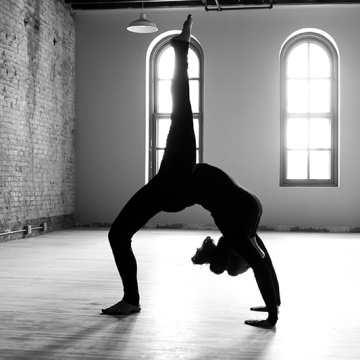What comes to mind when you hear the term “yogi”?
Do you imagine Lululemon-clad ladies with bottles of green juice in their hand? Patchouli-scented dudes sitting in lotus chanting “Om”?
How about the Hindu men and women who originated the practice as a method of deep, spiritual devotion and self-reflection? How often do you think of them?
I would guess not so much. Yoga has only been prevalent in the West for about half a decade–much less time than the thousands of years that it existed before that.
Yet we seem to have forgotten (or maybe are unaware of all-together) the predecessors than enabled us to learn this practice. Many of us in the United States and other first-world countries see yoga as nothing more than exercise and a way to calm or center oneself. We may have even picked up the hobby because we see it as such- just something to do in our free time that is now considered trendy and cool.
That’s where the prospect of cultural appropriation comes in. This term, which has become quite popular in recent media, refers to adopting specific aspects of a culture other than your own without permission. These facets are usually embraced because they are viewed as kitschy, fashionable or ironic. Some see American yoga as falling under the umbrella of appropriation because we have manipulated an ancient religious custom without proper homage to its origins.
Of course, certain yoga studios and teachers do better jobs at this than others. Personally, I view cultural appropriation- especially regarding yoga- as a gray area.
Who, exactly, are you supposed to get permission from? America is a melting pot: virtually everything in our daily lives is a product of some other culture or custom. Where is the line drawn?
The problem lies in how one addresses the matter and what their intentions are. As a yoga instructor and practitioner, I have seen a consistent practice shape many a life for the better. I have also seen people take advantage of the tradition.
This can range from using pose pics as a way to gain Instagram popularity to participating in a chant with no idea what it means, to falsely claiming the yogi title to express your pseudo-spirituality. Like any other form of appropriation, culprits feel they can pick and choose what they like about yoga and leave the rest.
This in no way means that yoga should be avoided in the west, but that it should be practiced with awareness, tact, and respect.
The first step would be to educate yourself. Yoga is much more than a form of exercise; its origins cannot be overlooked. The asanas (postures) that most western yogis partake in are only one very small piece of the large yogic puzzle. Yoga is a way of life involving ethical structures and inward focus.
The physical appeal of yoga is a good thing since it draws people to the practice who may not otherwise have made it there. It is an effective way to combat pain and maintain overall health. If stretching exercises (that some may call yoga) are helping you, then great!
But take caution when claiming yoga as your own. Unless you are committed to fully delving into the lifestyle, your efforts may come across as appropriation.
The same goes for students who drop into a class every now and then but don’t bring their mindfulness off the mat. It is important to recognize the greater purpose of yoga, which is to yoke the mind and body. This requires consistency and dedication that can’t be achieved in two hours a week.
Most eastern yogis don’t even practice in studios. Ever. And they meditate more than they move. And they respect the yamas and niyamas. And they probably don’t refer to themselves as “yogis,” as if that’s something to be praised.
But does that make us bad for taking something customary and shaping it differently? Is it equally bad to dive head first into yoga and all of it’s aspects if it was not originally part of your culture?
A non-negotiable takeaway here is that consciousness and respect are important in any matter of this sort.
Yoga’s popularity is not inherently bad when embraced in an appropriate way. However, as someone who isn’t of Indian descent and does not identify as Hindu, I do not feel comfortable taking a definitive stance on this subject. But I encourage you to consider my thoughts on the matter and comment with your own!
Also by Quincy: What Your Yoga Teacher Wishes You Knew
Yoga Music: Your Home Practice Play List
3 Ways to Reconnect with Your Body
__
Image: Wikimedia Commons





